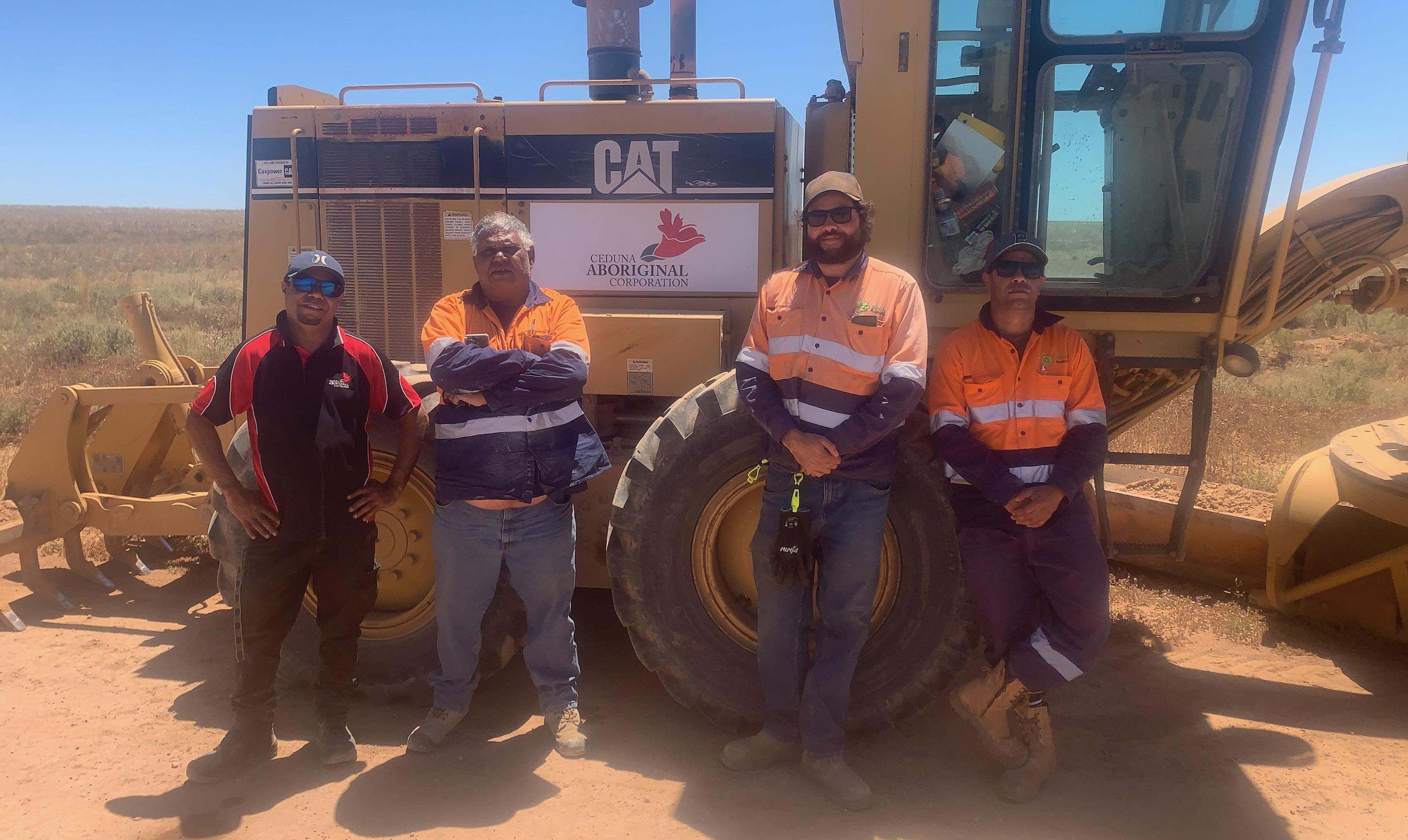
4 minute read
THE CEDUNA ROAD REPAIR AND UPGRADE PROJECT
Empowering Communities and Stakeholder relationships through civil construction
Birubi Australia’s West Coast Homelands Roads Upgrades project was aimed at repairing and upgrading the roads that connect ten Aboriginal homelands. However, what truly set this project apart was its emphasis on local engagement and community empowerment. By integrating local Aboriginal individuals into the workforce, the project not only addressed critical infrastructure needs, but also fostered a sense of ownership and purpose within the communities themselves. Also, our stakeholder management made a significant contribution to the development of this project, especially the relationship developed with the Ceduna Aboriginal Corporation (CAC). By collaborating with CAC during the planning phase of this project, we were able to create a methodology that leveraged the available resources as much as possible to assist in the completion of the project.
REVITALISING CONNECTIVITY AND QUALITY OF LIFE:
The Ceduna project primarily focused on improving the roads that connect ten Aboriginal homelands, addressing long-standing issues such as dust, corrugations, rutting, and poor drainage. By revitalising the road network, the project aimed to enhance accessibility and the overall quality of life for the communities residing in these remote areas. The project also provided safer and more reliable roads for the communities’ transportation. This led to the improvement of the school bus routes of one of the local communities, which in turn enhanced the quality of life of the local Aboriginal children.
STRATEGIC PLANNING AND LOCAL ENGAGEMENT:
Birubi Australia Pty Ltd (Birubi) adopted a strategic approach to project planning and management. Recognising the importance of community engagement, we actively involved the local Aboriginal population at every stage of the project. The consultation process was comprehensive, ensuring that the community's needs, concerns, and aspirations were taken into account by involving the communities covered by CAC, as well as the communities of Tia Tuckia, Scotdesco, and Koonibba. We also held consultations with the Department of Infrastructure and Transport (DIT) in Port Lincoln, Ceduna Council, and SA Water to address permit requirements, availability of subcontractors, and construction water requirements. As a result, the project team at Birubi was able to maximise the use of local plant and labour resources through the CAC, and engage with local Aboriginal businesses and workers. Effective risk management strategies were implemented to address challenges such as personnel availability, fatigue management, and working in a rural setting.
EMPOWERING THE ABORIGINAL WORKFORCE:
Birubi prioritised the recruitment and training of Aboriginal workers. By actively involving the Aboriginal workforce, the project placed great emphasis on training, upskilling, work experience, and personal development, to empower our workforce and leave a legacy in the community. Through these efforts, Birubi successfully achieved our goals where, 85% of the onsite workforce were Aboriginals, with 82% of these staff coming from the communities we were working in. This was caused by our engagement with the local community, our internal staff members (Dunbar and Anthony), and working closely with CAC. The collaboration with CAC ensured we could engage with partnerships, such as Eyre Plus, to increase engagement in the community, and allow as much as was possible for the value of the contract to go back into the communities we were working in. This project provided opportunities to upskill our existing Aboriginal employees by enhancing their skills and broadening their capabilities, considering the project needs. Our grader operators expanded their grader skills to encompass pavement construction and working to level and shape control. Dunbar also further developed his capabilities by taking on a supervisory role, leading a larger team under the supervision of Nathan and Jay. Additionally, we provided other training programs that were addressed to the CAC workforce. These programs involved training workers to utilise plant machinery that had not been in use for some time, providing training and experience in Workplace Health and Safety (WHS) aspects such as Safe Work Method Statements (SWMS) and plant safety, as well as implementing plant maintenance and record management systems. Workers also gained valuable experience in road construction, which provided them with additional expertise. As a result, by actively involving the Aboriginal workforce, the project created a positive impact, fostering economic development and sustainable growth within the local communities.
ADDRESSING TECHNICAL COMPLEXITIES:
The Ceduna project encountered several technical complexities that required careful planning and execution. Drainage improvements, reshaping road surfaces, securing suitable pavement materials, and limited truck resources were among the challenges tackled by Birubi. Our team leveraged existing infrastructure, collaborated with local suppliers, and sequenced works to optimise resource and capabilities allocation. Through effective project management and collaboration with local resources and expertise, adaptability, and resilience, these challenges were also successfully overcome, ensuring the project's timely completion and adherence to the highest standards of quality.
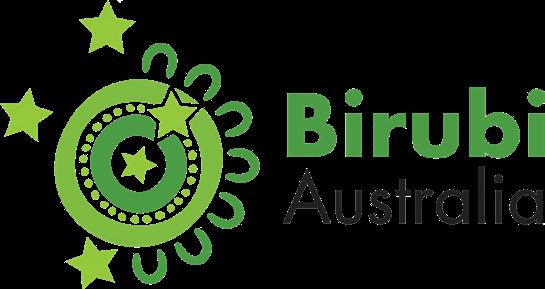
The Ceduna Road Repair and Upgrade project stands as a testament to the transformative power of civil construction when combined with community engagement and empowerment. By revitalising road infrastructure, providing employment opportunities, and fostering a sense of ownership within the Aboriginal homelands' communities, the project has improved accessibility, safety, and overall quality of life for the people there. With a strategic approach, dedicated teamwork, a relationship with CAC, and a commitment to skill development, the project has not only enhanced physical infrastructure but also empowered individuals, creating a lasting positive impact on the region. This project serves as an inspiring example for our future approaches, showcasing our business commitment to engaging with Aboriginal communities while improving their well-being.
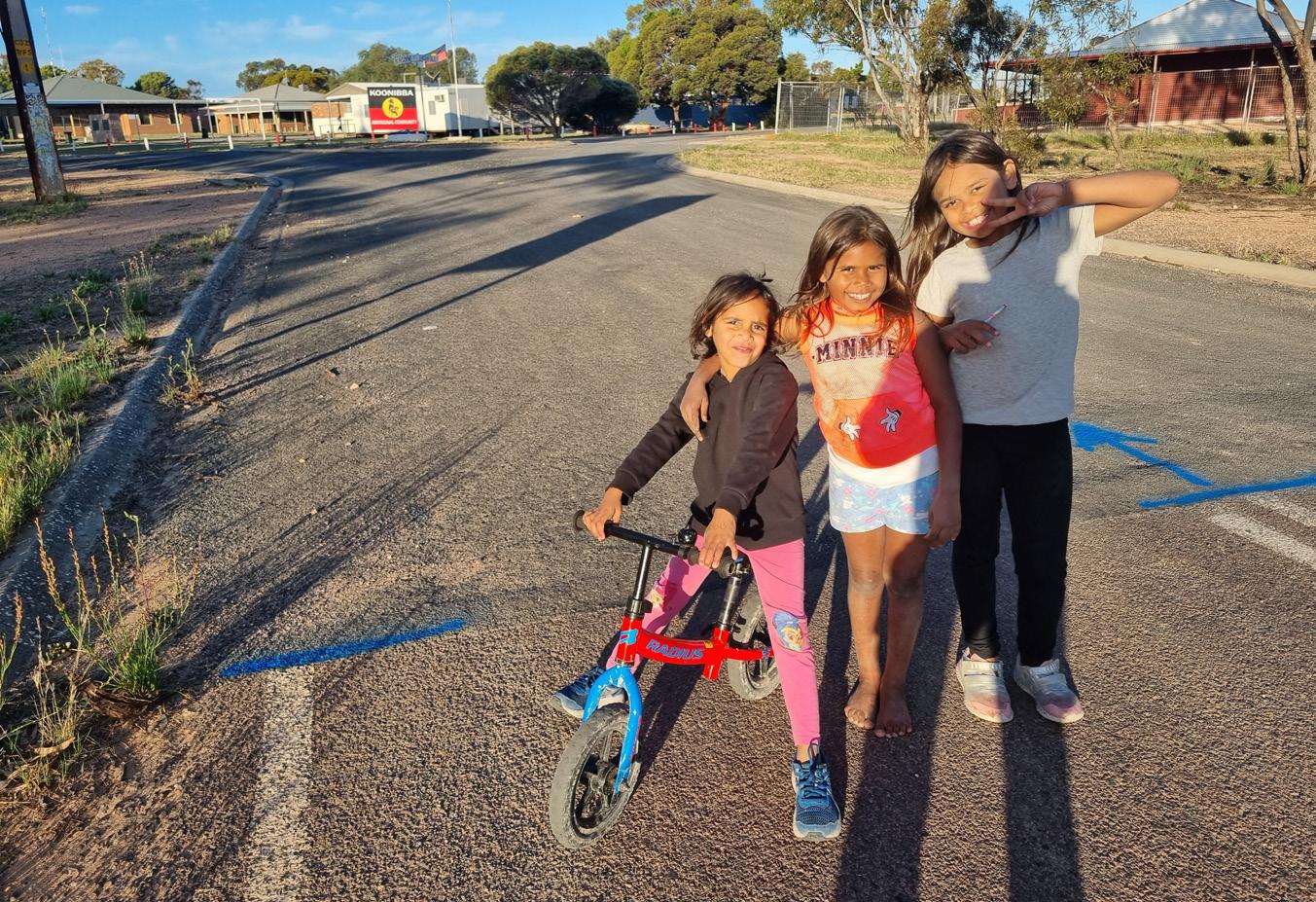
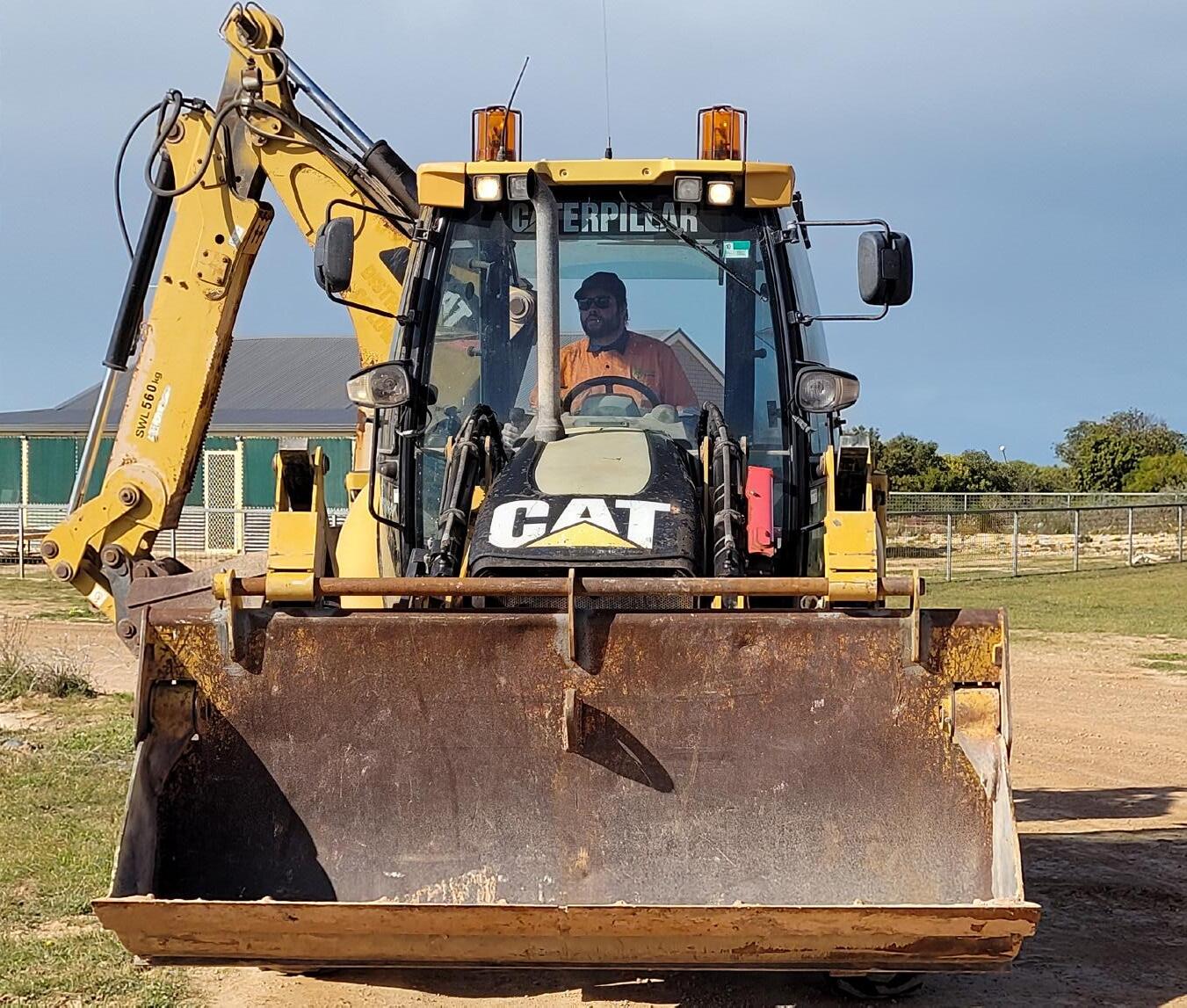
What an incredible night! Thank you to everyone who attended the 2023 CCF SA Industry & Training Awards
Gala at the Adelaide Convention Centre. Everyone looked fabulous, and the award finalists were outstanding! Former Australian Cricketer, Wayne Phillips, did a fantastic job as MC.
Drumroll... together, we raised OVER $9,000.00 for the Little Heroes Foundation!
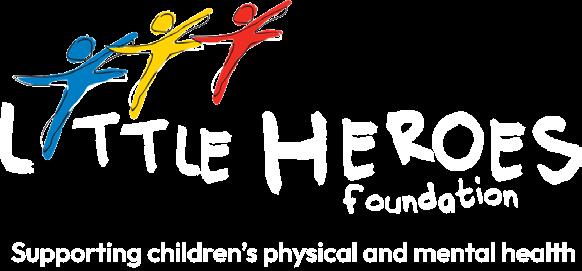
It was great to have the industry so well represented, our hearts are full of pride!
Award Category Winner


President's Lifetime Achievement Award Individual Tim O'Connell
President's Lifetime Achievement Award Corporate Teagle Contracting
President's Lifetime Achievement Award Associate Alexander Symonds
Certificate IV in Civil Construction Supervisor of the Year
Indigenous Trainee of the Year
Best Training to Employment Outcome
Manager of the Year
Women in Civil
Future in Civil
Quiet Achiever
Harry Wauer Memorial Award
CACL Host of the Year
CACL Apprentice of the Year
Brenton Annear; Davison Earthmovers
Adam Varcoe; RawSA
Jared Osborn; McMahon Services Australia
Kurt Stephan; Teagle Contracting
Emma Geggie; Prime Traffic Solutions
Jude Allchurch; Workzone Traffic Control
Edwin Davey; CPB Contractors
Jack Collard; Remo Contractors
Lochlan Worden; BMD
BDT Construction SA
Elijah Quartermaine; BMD










